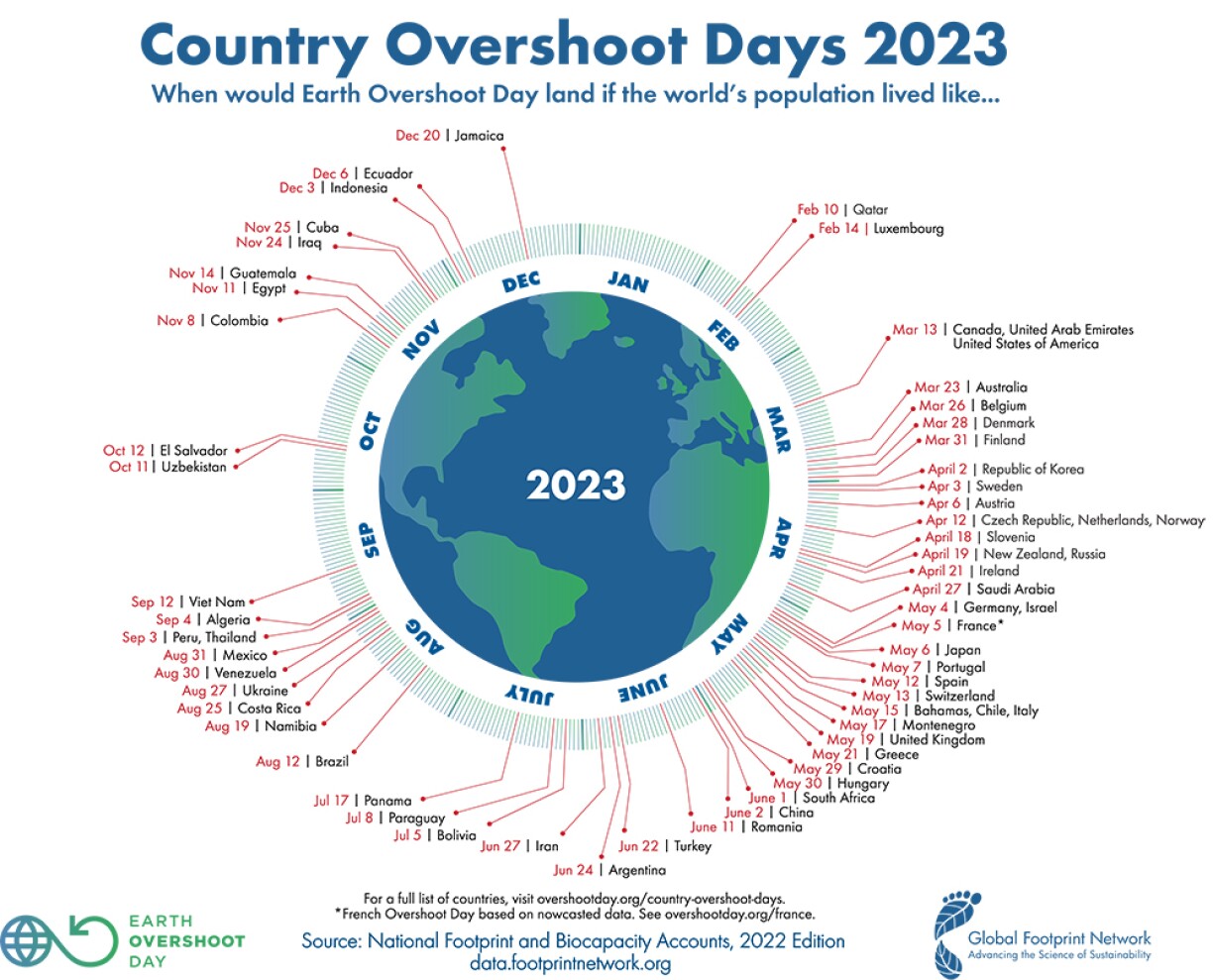
In 2023, the NGO Global Footprint Network estimates that if all of humanity consumed as much as Luxembourg, the planet’s resources would be completely exhausted by 14 February. This was already the case in 2022.
Read also: ‘Seven Earths needed’ if the world lived like the average Luxembourger
To achieve this estimation, the NGO calculates the country’s ecological footprint and then compares it to its biological capacity.
As a way to illustrate, if the country can produce one tonne of wood per year, but its population consumes ten tonnes, then its ecological footprint in this area is very high. Conversely, if the country produces ten tonnes of wood and its population consumes only one tonne, the deficit disappears.

The NGO estimates that Luxembourg has one of the worst ecological footprints in the world. If its lifestyle were generalised to the world’s population, it would take only 45 days to consume what the Earth can offer in a year. We would need eight planets like Earth for the whole world to live like the people of Luxembourg.
In 2022, the global overshoot day occurred on 28 July. But, it is not only Luxembourg that is considered a poor performer, the same applies to Belgium (26 March), Germany (4 May), France (5 May), and Portugal (7 May).
Only Qatar performs worse than Luxembourg: its overshoot day falls on 10 February, four days before that of the Grand Duchy. Does this mean that Luxembourg pollutes as much as an oil country?

Although the overshoot day is convenient for comparing countries, its method of calculation is debated.
Firstly, because the data used comes from the United Nations. They are reliable, but not updated very quickly. The latest ones used for Luxembourg date back to 2018. To obtain the 2023 result, the NGO is then obliged to produce an estimate.
The other limitation is the nature of Luxembourg: the Grand Duchy is a small country and its results are influenced by its neighbours.
The consumption of cross-border commuters is obviously taken into account in its ecological footprint, calculated per capita. But, since they are not residing in Luxembourg, cross-border commuters accentuate the country’s poor ecological result as much as they improve the Grand Duchy’s GDP.
According to the Higher Council for Sustainable Development, Luxembourg’s poor result is exaggerated. Let’s take tourism at the pump, a well-known phenomenon by now. It alone is worth almost two planets.
Luxembourg is also very active in sectors where production is closely related to export. This includes, aviation (Cargolux is one of the world leaders and Findel is a major freight centre) and the steel industry.
According to the calculations presented in its report, the Council estimates that without including border workers, the consumption of Luxembourgers would be equivalent to six planets, not eight as the NGO calculated.
Although this result might not be as bad, it still gives Luxembourg one of the worst ecological footprints in the world.
To reduce Luxembourg’s ecological footprint, the Council recommends lowering energy consumption, reducing travel, and adopting more environmentally friendly modes of transportation. The CO2 tax is considered a step in this direction as it limits tourism at the pump. The Council also proposes favouring more sustainable consumption, recycling, and eating more seasonal products and less meat.
The report even goes as far to state that “the Luxembourg pension system and the economic model that stems from it are perfect examples of an unsustainable economic model”. To bring about fundamental change, Luxembourg’s social model and its need for economic growth would have to be questioned, argues the Council.